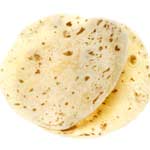|
Stop before
you are stuffed.
Learn your body's signals and practice stopping before you feel full.
Be selective.
It's easy to eat food just because it's put in front of you. Be mindful of
what you are eating, and make sure that you are choosing what to eat
Select small portions.
Portions in most restaurants are over-sized. If you are eating with someone
else, try sharing an entrée, or order two appetizers instead of an entree.
If you're eating alone, eat half and take the rest home for another meal.
Beware of desserts.
A single slice of The Cheesecake Factory's Original Cheesecake packs almost
800 calories and an incredible 49 grams of fat (28 of them saturated, or 50
percent more than is recommended maximum per day). Either share such a rich
dessert several ways or skip it altogether and finish your meal with a piece
of fruit or other lower-calorie option.
Slow down.
Eating fast short-circuits the signals that your digestive system generates
to signal that it's getting full. Slowing down gives your stomach and
intestines time to send these messages to your brain.
Spoil your appetite.
Having a snack or appetizer before a meal can dull your hunger and help you
eat less at the meal.
Be aware of why you are eating.
Sometime we eat when we're bored, anxious, or angry. Try not to soothe your
negative feelings with food. Dealing with them in other ways --talking to
friends, listening to music, taking a walk, meditating, or working--can help
you relieve stress without gaining weight.
|


